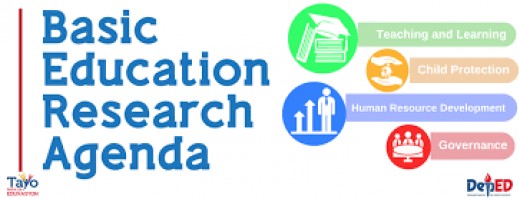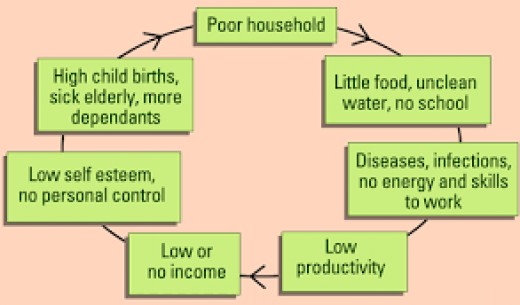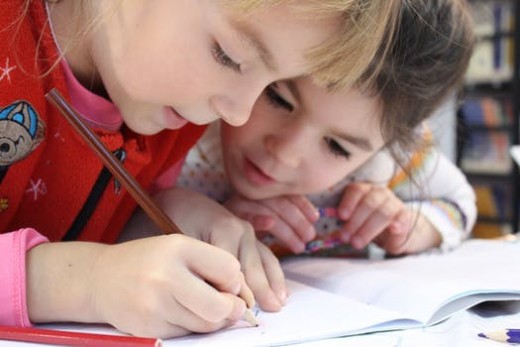This is a sample of academic research report in which covers basic information or guides on how to write research report ready to be submitted.Before working on this sample make sure you have already prepared your research proposal, because research proposal help you to choose the suitable topic and research method in which you will use in your study. For the complete guide on how to write academic research report , take a look on below sample.


Chapter one
This chapter covers back ground of the problem, purpose or aim of the research, research questions, significance of the research, and definition of the key terms and finally delimitation of the study.
1.1 Background of the problem
Education is a process through which individual acquire skills, competencies, and attitude. It is the right of every child to be educated; it can be traditional or western. Thus, education it has been regarded as culture to man, people and the nation of the world at large. This explains why man has to educate himself and his offspring in the society. Poverty is one of the factor militating against man from carrying out his educational activities perfectly. Because of the various perception and complexities of the term poverty, a universally agreed definition cannot be arrived at. But then, poverty according to the oxford advanced learners dictionary (2000), poverty is the state of being poor. Mike (2005) sees poverty as a way of life characterized by low calories intake, inaccessibility of adequate health facilities, low quality education system, low life expectancy, unemployment and under-employment. It will therefore be considered in a broader way which implies that, it has been viewed in various perspectives which include one national state and home background. At the national level, a nation can be considered poor when her economic standard is very low and this automatically makes the nation underdeveloped. The economy of a country that does not reached certain stage of development in terms of infrastructure and other development indices. As regard poverty in the family level, we are referring to the home background. Even before the indigenous education or western type of education, the home has always been the agency through which man learns various aspect of life to enable him live a meaningful life in his environment. The home which is also known as traditional way of educating the young ones is still regarded as the first school of a child before he or she enters the larger society. The role of the home cannot be over emphasized because the general assumptions that, states of poverty in the family or home goes to a long way to determine the extent of youth or students’ educational development. Education is seen by many as the route to alleviate poverty. There is no doubt that meaningful; education is the most potential instrument for alleviating and eventually abolishing poverty. In considering the effect of poverty on academic performance of students to be precise, the home background is the most important phenomenon that need to be seriously considered in order to enhance the effective study of the relationship between poverty and students academic performance. In view of this, some factors that needed to be considered in the home or family background are parents’ academic qualification, socio-economic class and facilities available in home or home environment as well as parent status.

1.2 Statement of the problem
This research sought to investigate and identify the impact of family poverty on the primary and secondary school students’ in academic performance at East Usambara, whereby despite the Government effort to improve academic performance of students by provisions of human and material sources such as more training teachers and learning materials, and constructing more classrooms and laboratories, but still academic performance of students in East Usambara remained poor. Hence a researcher decided to look on the other hand of family to find out how family poverty affect academic achievement of students, because family play a greater role upon students academic performance .Hence calling up on researcher to make an investigation on how family poverty affect students academic performance.
1.3.0 Objective of this research
The following are the objectives of this research whereby they are categorized into two types, which are, the main objective and specific objectives:-
1.3.1 Main objective
The main objective of this research was to investigate the impact of family poverty on academic performance of students in primary and secondary schools.
1.3.2 Specific objectives
This research sought to achieve the following specific objectives;-
i. To analyze the challenges facing students from poor families in relation to academic performance.
ii. To assess the effect of poor academic performance on students from poor families.
iii. To suggest possible solution to the problem.
1.4 Research Questions
The following are sample of questions helped a researcher in the process of data/ information collection and gathering:-
(i) Does family poverty affect academic performance of children?
(ii) In which ways family poverty affect academic performance of children?
(iii) In which ways academic performance of children from poor families can be improved?
1.5 Definition of the key terms
(i) Poverty is the deficiency symptoms in various sphere of life such as health, education, water sanitation and employment.
(ii) Family poverty is the situation where by a family cannot afford to meet the required basic needs, such as food, shelter, and water.
(iii) Academic, in this research, means reading studying and technical skills. (Oxford Advanced learners Dictionary, 1997)
(iv) Performance, in this research, refers to the act of or process of performing a task, or an action etc. (Oxford Advanced Learners Dictionary 2006)
1.6 Significance of the research
(i) The research intended to be useful as the resource data and practical entity in formulating education policy toward primary and secondary schools as far as the role of family in matter is concerned.
(ii) To show and prove the importance of family in children academic achievement.
(iii) This study sought to create awareness among parents, government, students and other stakeholders in the society on the impact of family poverty in relation to academic performance
1.7 Scope of the study
Cohen et al, (2000) argues that it is very important for a researcher at the planning stage to clearly specify and define the area to be researched. Therefore this study carried out in Amani Muheza at East Usambara ( Tanga Region). This research covered all schools in Amani area. Thisresearch carried in this area because the area has many students who most of them perform poorly in their academic, including poor National examination results. Also, there are a large number of students who drop out from school before time and engage in early marriage, drug abuse and other activities like Agriculture and Bodaboda . Hence researchers wanted to know whether family poverty has an effect on students’ academic performance
Chapter two: literature review
2.1 Introduction
This chapter covers literature review as related to the research problem, related theory review, and demonstration of the knowledge gap after the readings. The following are related literatures:-
Poverty is defined as sufficient income in cash or kind to meet the most basic biological needs for food, clothes and shelter. This kind of poverty is commonly known as absolute poverty. It is also means miserable condition of life inadequate sanitation, health services and education Malunda, (2002). He further explains that, as many as 1.2 billion people or 23 percent of the world’s population live in this type of poverty that is absolute poverty. In Tanzania for example it’s estimated that in 1983, 655 percent of all Tanzanians living in village were living in poverty.
Poverty in the world is great problem associated with number of problems in explaining this, Jensen (2009:7), asserts that poverty involve complex array of risk factors that involves adversely affect the population in malt attitude ways. He further, argues that the four primary risk factors afflicting families living in poverty are such as emotional and social challenges, acute and chronic stressors, healthy and safety issues and finally cognitive lags.
Clause, (2010), however, argues that poverty considered every significant at risk. According to him at risk factor in relation to education means dropping out from school, and also on the other hand engaging in drug abuse and alcohol, in criminal action and attempt suicide among other consequences. He explains more that when examine poverty in school two types of poverty are looked at. The first is poverty on an individual level and the second is measure of poverty level in school. For individual statement poverty is typically determined by whether or not children are eligible to receive free or reduced price lunch where by a school poverty level seen a percentage of its student having receive a reduced price. Students who eligible to receive free or reduced price which these student are risk of academic failure. This may not be surprising however the consequence of high poverty in school is revealing as to how poverty gains momentum and can cause an entire system Detroiter.
Family economic level may influence academic performance in different ways. According to Marzono. (2004: 521), parent economic resources can influence self esteem in several ways, parent income bring both children and parent social status and respect that can translate into individual self esteem. He further explains that income can also enhances children’s self esteem by reducing the emotional or supportive qualities of parents home. The pressure that limited economic resources can place on marital relationship and can in turn translate into negative parent relationship and lower level self esteem.
In examining the effect of family poverty on children academic performance, clauss (2010: 737), points out three effects whereby he asserted that, first, stressful effect that poverty has on family may led to affect children academic performance, family living in poverty often lack some of the key components that, contribute to academic success such as security and access to basic resources. Second he argues that parents from poor families may be hindered from living positive emotional relations with their children’s due to a number of problems associated with poverty, related reasons such as having work long hours, being single parents and therefore having less time to spare with their children and being under constant stress. Finally he explains that, there is little hope for students living in poverty in school setting and poor academic will lead to a life chronic poverty.
Jensen (2009), also he pointed out the effect of family poverty on academic performance, arguing that poor children have fewer and less support network than their more affluent counterpart do. According to him children from poor families have fever cognitive enrichments opportunities, they also have fewer books at home, and they visit library less often and spend considerable more time watching Television than their middle income counterpart do. He further explains that children from poor family live in chaotic unstable households, they are likely to come from single guardian home, and their parent’s hood strains resources and correlates direct with lower chance of attend college.
Ross (2000) looks family poverty on academic performance by comparing students who are in urban and rural. According to him family background and social economic status have consistently been shows to be related to study student achievement. In emphasizing his argument, he pointed out times factors such as follow, first situation in urban public school overall had less desirable experiences than those in other locations on 8 of the 20 measures, analyzed even after counting for higher poverty concentration in urban schools. Second, he explains that situation in public schools on every measure except the availability of minority staff and student use of alcohol. Third, he asserted that students in high poverty urban public schools had less desirable school experiences than those in urban sub urban schools on two of indicators, fourth, student in high poverty in urban schools have unusually high rates of watching Television comparing with other groups of children or students, exceeding the rate that would be predicate from difference location and poverty concentration combined. Finally he concluded that students in urban high poverty schools had more disciplinary problems and were much likely to watch a lot of television.
Head (2008), in his study remind the society that, children of poverty truly lives in conditions that is unlike condition of middle class and wealthy children. He added that, children of poverty suffer from breathing problem. Also impoverished children wish for ordinary things like pets and nice clothes. But he argues that the hopes and dreams of children from poor families are not different from other children.
Barr et al (2008), however points out the effect of economic impoverishment on student learning, that is, to them, poor nutrition has a debilitating effect on children poverty and homes of poor children’s often lack the education enrichment supports to maintain and enrich what happens during the school day as a result poverty level children have a poor recode of completing home work, assignment and arrive at school next day less prepared than their advantage peers. They also assert that, children of poverty suffer significantly during the Summer time, whereby chose children from poor family during the summer time they spent their time going to the city and state parks taking swimming and dance lesson and participating in organized sport programmers.
Tsai (2008) indicates that economic status including parent’s education status, employment status and parental income can have an influence either direct or indirectly on student’s performance. He argues that those children who come from financially low family backgrounds or live with unemployed parents are more likely to be accused for academic failure and leaving School early. He continued to emphasize that family structure can also lead to poor academic performance, example, unstable family structure, such as single parent home blended families, and extended family homes have potential to interface with student performance at school. However parental involvement in children school activities is important in student attitudes toward education and their school performance. This is because poor educated parents do not possess the adequate skills and information to participate in their children with home work assignment and to solve academic and behavior. Therefore this also can led to poor academic performance because the students has no a person to direct him or her to do his or her home work assignment, hence poor performance.
2.2 Theory regarded the study
Ragner Nurkse, in his theory of vicious circles of poverty believes that society is poor because it is poor. He claims that a society with low income has both low level of saving and low level of consumption.
Nurkse believes that a circle of poverty is a phenomenon where poor family has become trapped in poverty for at least three generation and those families have either limited or no resources. To clarify his argument, Nurkse takes poor man as his example, as a consequence of lower income, the poor man continue to grow weaker and inefficient there by perpetuating his poverty.
In addition, poverty can have many dimension, low earning and low level of skill or ability, lack of assets and access to training and education, poor health malnutrition, lack of shelter and food are also the sign of poverty. However on an individual level the circle of poverty starts with the statement that a poor person cannot pay for an adequate supply of food and thus is poor. The circle of poverty starts all over again with a situation where person does not have money to get nutrition’s food, and this process goes on and on.
Furthermore the vicious circle of poverty implies a circular constellation of forces tending to act and react in such way to keep a country or person on in state of poverty. According to Kathel (2011; 220), a poor man not have to eat being under fed, his health become weak, being physically weak, his working capacity is low, which means that he will not have enough eat and so on.
Therefore, in relation to this study, the vicious circle of poverty implies that poor man will not be able to send his children to schools, especially in high school and higher level. And this will leads to illiteracy and unemployment hence both children and parents remain poor because children remain uneducated and therefore have no access to employment opportunities hence the vicious circle of poverty takes place.
Vicious Cycle of poverty

Source
2.3 Research gap from review of literature
The surveyed literature from different source of materials on the impact of family poverty on children academic performance they based on psychological effect, relationship between parents and children, parents’ income, single parents and comparing the students who are in urban and rural schools. Example, Clauss (2010; 737), in his study pointed out psychological effects based on stress that has on family as a source of children poor academic performance. He has also shown the relationship between parents and children, and single parent to have effect on children academic achievement, where by the study regard poor relationship between parent and children as a source of children poor academic achievement due to parents being busy with work, the whole day, leading them to have no time to spare with them. Also in the study carried by Barr et al (2008), based on comparing parent income and economic impoverishment on student learning to have an effects on children academic achievement, the study indicates that parent income may have direct or indirect contribution to children academic achievement. Finally, the study done by Ross (2000), based in comparing the students who are in rural and urban schools, the study indicated that there are little materials access in rural schools like network, which may lead to poor academic achievement of children comparing to urban schools.Therefore, from the analysis of different literature, it clearly show that, there are many studies which have done on the impact of family poverty upon students academic achievement but these studies are too wide and unspecified to a certain area . Therefore, this study sought to find out and identify the impact of family poverty on the student’s academic performance in primary and secondary school, particularly in Amani rural area as a case study.
Chapter three, Research methodology
3.1 Introduction
This chapter covered research approaches, research design, population of the study, sample size, location of the study, sampling procedure, data collection methods, data analysis of the study.
3.2 Research Approach
The researcher used mixed approach because the study need descriptive and quantitative data, therefore mixed approach were used so as to gather required information
3.3 Research design
In this study the researcher adhered to use qualitative and on the other hand quantitative design. This is because the study dealt much on the impact of family poverty situation on students in primary and secondary schools.
3.4 Targeted population
In this study three wards schools were visited. Where by the population included students, teachers, parents, and heads of schools. Therefore the researcher used all mentioned respondents because are the one who concerned with the problem, so they were used by a researcher as respondents and provided required information to the researcher
3.5 Sample size
Since it was not possible for everybody within the targeted population to be involved in the study, the researcher planned a small sample groups, therefore the population from which data gathered was, 100 respondents.
3.6 Location of the study
Cohen et al, (2000) comment that it is very important for a researcher at the planning stage to clearly specify and define the area to be researched. Therefore this study carried out, Amani Area in Tanga Region. The study covered three ward schools. The study carried in this area because the area has many schools with many students who most of them perform poorly in their academic, including poor National examination results. Also, there are a large number of students who leave the school before time and engage in early marriage,drug abuse and other activities like Agriculture and Bodaboda. Hence researchers wanted to know whether family poverty has an impact on the students academic performance in this areas.
3.7 Sampling procedure
Simple random sampling was used during the process of gathering information or data. This provided equal chance to female and male to give information in this study, so it reduced biasness and errors.
3.8 Instrument for data collection
The study involved questionnaires, interviews, and documentary review in gathering required information
3.8.1 Questionnaire method
During the course of investigation two types of questionnaire were used, that was closed – ended questionnaires and open – ended questionnaires. Questions were employed to students where by different questions were formatted for the respondents to answer through writing the answers on the papers provided. This helped to provide a wide chance for the respondents in which they gave out their views and their suggestions concerning with the problem. This method was useful because large amount of information were collected from a large number of people in a short period of time and in a relative coast effectively way. Also through this method the results were quickly and easily quantified by a researcher or through software package. The method also helped to get data based on qualitative, that is numbers and tables.
3.8.2. Interview method
The researcher used oral questioning or conversation with respondents, where by structured interview was employed. This method was administered to the parents, head of schools and teachers. During data collection the interaction was in form of face to face conversation between a researcher and the respondents. This method was useful because it helped in investigating issues in a depth way and discovered how individuals think and feel about a topic or a problem and why they hold a certain opinion. Also the method was useful because it was helped in obtaining details, information about personal feelings, perception and opinion, and also it was avoided an interviewee from not influenced by others in the group, and therefore it was helped in obtaining correct information from interviewee.
3.8.3. Documentary review method
Researcher used this method to gather information through studying the written documents such as textbooks, journal, news papers, speeches, articles, picture and diagrams. The researcher read different documents and results records or data which enabled him to gather required information for analysis. The researcher visited ward schools and has got required information. This method also helped to get access to information that was difficult to get in any other way such as for those people or case who were not will to talk in a formal research interview . Also it helped in making collection of data over a longer period of time as well as large samples
3.9 Data analysis plan
The information which was collected through all the mentioned methods were presented in different ways such as descriptive forms, and also processed into figures. They were also presented into simple percentages to indicate the responses of each item in chapter four
Chapter four: data analysis, interpretation and discussion Introduction
This chapter processes data, present and analyses the findings from the field. It presents the findings in both qualitative and quantitative approaches. Principally the study aimed at investigating the impact of family poverty on primary and secondary school students academic performance, in Amani area. Thus, the data processing, presentation and analysis based in tables and analysis.
4.1 Data processing and presentation
The collected data was processed by the researcher after the completion of data collection, where by the researcher put together the interview and questionnaires for further classification of responses which had risen by the respondents. The researcher labeled the questionnaires and interviews by numbering them from 1 to 300. This was because there were about 300 respondents, who responded in total. From this then, the researcher cross-checked all the responses in questionnaires and interviews to get similar or alike responses in each particular question asked and hence a researcher grouped the responses. Therefore data in this study was presented in different form including tables and analysis.
4.2 Data analysis
The researcher analyses the data in accordance with the research objectives, where by the analysis based on quantitative and qualitative description of the field result as presented by the respondents in questionnaire and interviews. Therefore, the researcher analyse the findings with reference to research objectives, in accordance with the above two approaches
4.3 Demographic information of respondents
During the field research the researcher attended the total of three ward schools. The respondents were categorized in different groups with their size, such as 50 teachers from all three schools, 135 students and 15 Head of school from all three ward schools, also 20 civilians (parents) in the ward. The following is the table showing general demographic information of the respondents involved in the process of data collection. {present your data in table)
References
Ballis,J.(2008) The globalization of World’s politics Oxford, Oxford University Press.
Barr et al (2008) saving our students, saving our Schools. Corwn Press, Mathura road, NewDelhi India.
Clauss-enhlers(2010) Encyclopaedia of cross-cultural School psychology, The state University of New Jersey U.S.
Jensen, E. (2009)Teaching with poverty in mind, United state of America.
Kathel et al (2011) Ragner Nurkse classical economic development and its relevance for today. UK & New York.
Lippman (1996) Urban Schools. The challenges of location and poverty. US, Department of Education.
Ross, M. (2000) School level correlates of academic achievement.US, Department of Education.
Rural Poverty portal (2005-2012), http;//www.ruralpovertyportal.org.country/home.
Tsai (2008) A study of at risk students; Experience in residential alternative girls. The Universityof Incarnate ,United State of America.
Vicious circle of poverty/http;//www.preservativearticle.com/ what is vicious circle of poverty.
World Bank Country study (2002) Tanzania Social sector review. United State of America
























